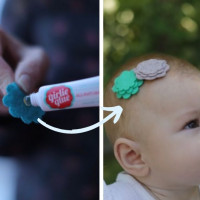No one could deny that breastfeeding is a natural act. A mother’s breasts are designed to lactate and babies are born with an inbuilt reflex and desire to suck. But just because it’s natural doesn’t mean it’s always easy. For all sorts of reasons breastfeeding can be challenging, for mothers and their babies too. It often takes time to learn the skills involved in correctly attaching a baby to the breast and to ensure they are sucking effectively. Sustaining confidence and persevering when breastfeeding is not going easily can be draining and it is common for moments of creeping doubt to erode the most self assured mother.
When discussing the difficulties faced with establishing feeding, a recent survey by Philips AVENT[1] revealed three main issues that mothers’ face – sore or damaged nipples, the baby not latching properly and milk supply. It often takes time to learn the skills involved in correctly attaching a baby to the breast and to ensure they are suckling effectively. It’s worth remembering that the benefits of breastfeeding are so significant that it is almost always worthwhile to work through problems and remain positive. Breastfeeding helps mothers feel close and connected to their baby. It can be such a special experience. Only through her children can a mother practise such an intimate and nurturing connection.
Breastfeeding for the first time can be unfamiliar and completely new. It is normal for mothers to need lots of time and practice to work out the most comfortable position to sit or lie down to breastfeed. This is quite separate to the next step of working out the mechanics of attaching a hungry, squirming baby. Synchronising the process of waiting for their mouth to open in a wide gape, bringing the baby to your breast, ensuring their chest is against your chest and making sure their mouth is correctly aligned with the nipple may all seem too difficult and tricky. If you feel yourself becoming overwhelmed by it all, then just remember- babies who are well, alert and hungry are biologically driven to seek out the nipple and attach without too much help.
Don’t underestimate your baby’s ability to know what they need to do. Try to find a balance between supporting them whilst not doing too much fiddling and fussing. Your guiding and directing needs to be gentle and calm. Breastfeeding is not meant to be a stressful process.
Be kind to yourself and don’t expect to know it all. Although information from friends, family and health professionals is undoubtedly useful, it won’t be until you go through the mechanics and emotions of breastfeeding yourself that you’ll know what’s involved. Be open to what your baby can teach you as well.
If you choose not to breastfeed or aren’t able to, always remember that your baby will still love you regardless. Babies are hard wired to seek attachment and form loving, emotional bonds with their parents. Breastfeeding is not the only way this connection occurs. Holding your baby close, talking gently to them, looking into their eyes, kissing and cuddling them will all help support strong emotional attachment and love. Feeding is just one of the many caring tasks which mothers do for their babies. It should not eclipse all the other, equally important jobs which are done through everyday care.
Avoid feeling guilty or comparing yourself to others; this is rarely useful. Mothers who breastfeed their babies do not have a monopoly on emotional attachment and connection with their babies. Nor does breastfeeding make them more authentic or “real”. Every mother and her baby are individuals – each a unique mix of their own environment, genetics, history and personality. At the end of the day only you and your partner can know what is right for you and your own special baby.





















3:10 pm
10:18 am
3:11 pm
7:33 pm
9:29 pm
4:14 pm
1:03 am
10:32 am
8:24 pm
11:58 pm
7:58 pm
6:16 pm
10:52 pm
8:54 am
7:07 pm
- 1
- 2
- …
- 6
- »
Post a comment